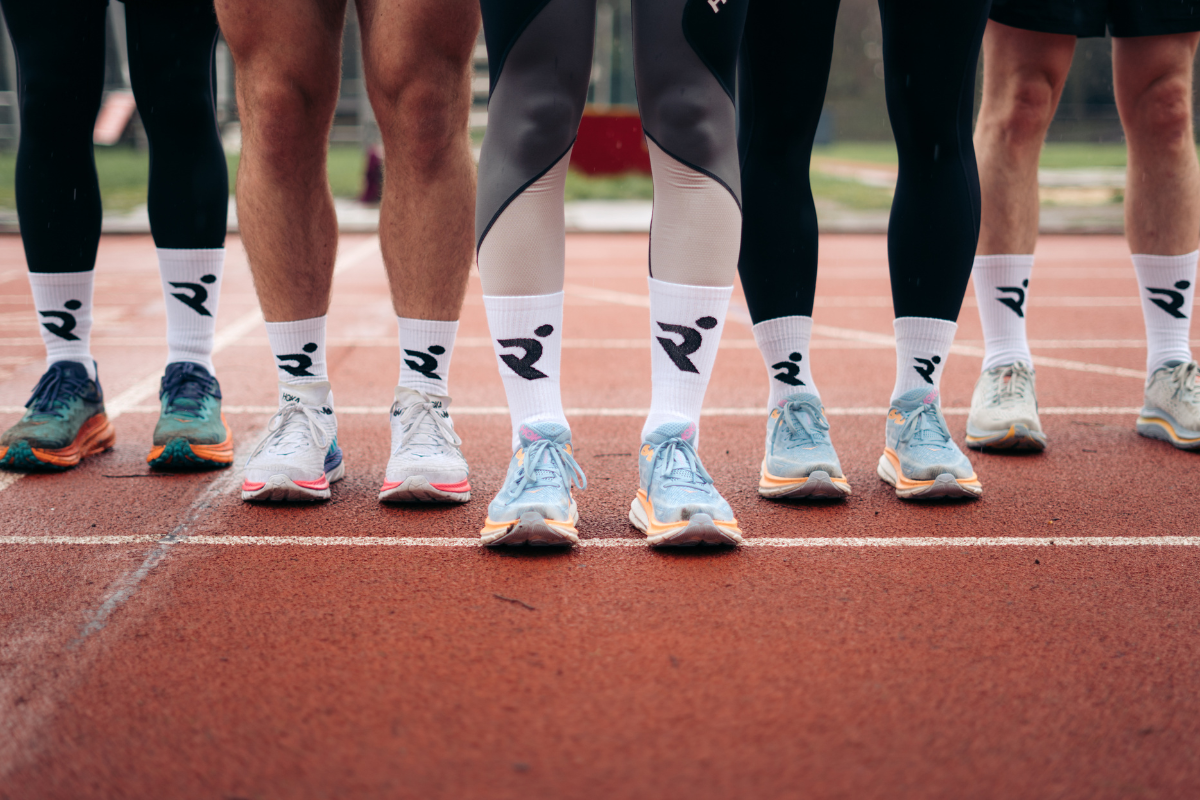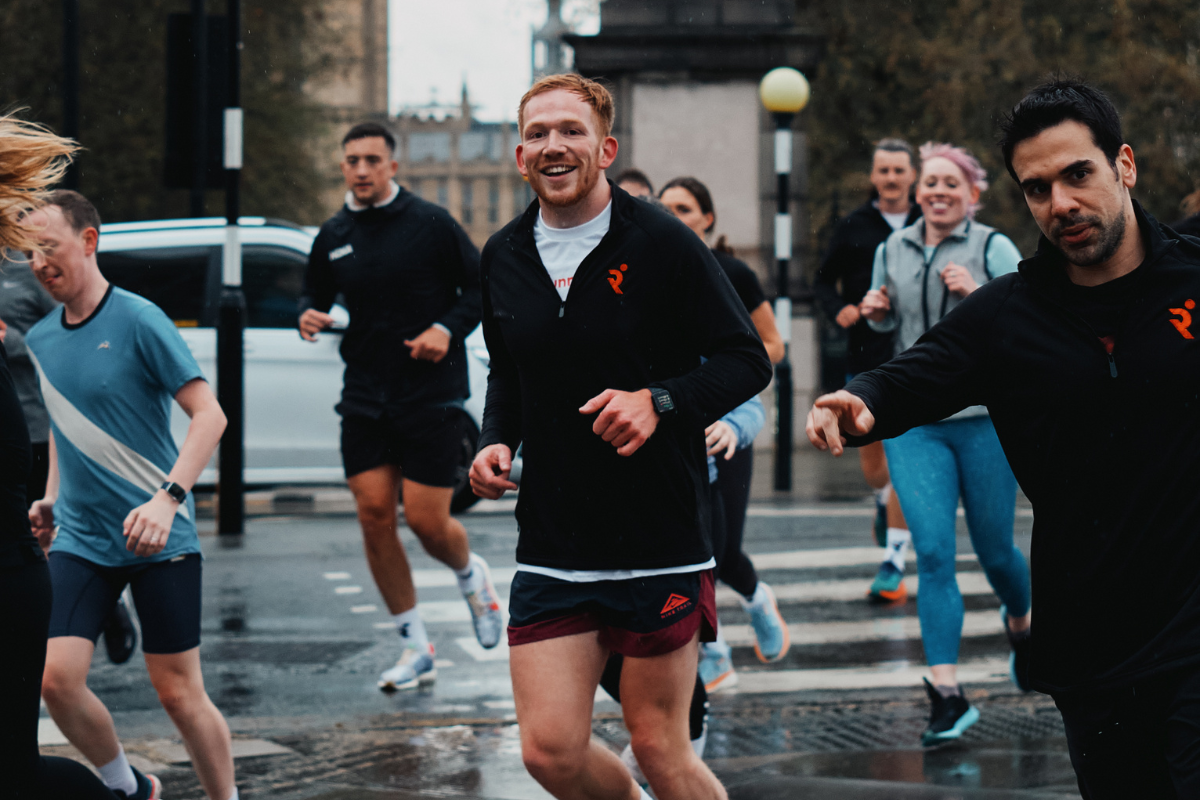“The most valuable thing you can make is a mistake – you can’t learn anything from being perfect,” said the legendary Adam Osborne, and he’s not the only one to celebrate mistake-making journeys. From basketball coach, John Wooden, to the iconic car-making aficionado, Henry Ford, some of the greatest people in history have given kudos to the power of mistakes. And you know what, we agree with them all. Mistakes have the power to turn you into something even more awesome than you were before.
That’s what this piece of writing is all about. It’s not about making sure you are a perfect runner, flawless trainer or criticising everything you have been doing up until now. Oh no. This is our chance to look back on everything we have learned on our journey so that you can understand what the most common mistakes are – and then solve them. Ready? Let’s do this.

Mistake #1: Not learning From Your Mistakes
Here’s the thing: every runner makes mistakes. It’s part of the journey and, not only that, but a positive in a lot of instances. Take any aspect of life and we guarantee that you’ve learned most of your lessons through good old trial and error. That’s the same with your running schedule or training plan. There is no one-size-fits-all solution. Instead, they are things that need to be tailored to you and your goals, and tweaked as you go.
The solution: Understand the power of adaptability. What may have been the solution for something else – or the same thing but a while ago – might not be the solution now, so you need to adapt. It’s what we call a growth mindset and it’s all about being self-aware. Whether you picked up an injury or you didn’t run your best race, make a note of all the reasons why this might have happened and then adapt.
Mistake #2: Not Warming Up Properly
Or cooling down for that matter. Sure, back when you were at school, you were probably able to crush your cross-country course, smash hockey training, wolf down a slice of pizza from the cafeteria and then play an 80-minute game of rugby without once stretching your quads. Then chug down a bottle of Lucozade afterwards and call it a night. No stretching, no warming up, no cooling down, nothing. But those days are over and the importance of warming up and cooling down has never been greater, especially for running newbies.
The solution: Trust us, you don’t need to go over the top on this one. A nice brisk walk for ten-minutes on either end of your run, followed by some static stretching afterwards will make a world of difference. Seated Forward Bend. Knee-to-Chest Pose. Reclining Butterfly Pose. Child's Pose. That’s enough to lower your chance of picking up a niggle, improve blood flow, and reduce stress to both your heart and other muscles.
Mistake #3: Doing Way Too Much
This one is so common – so, so common – that it could have easily taken the number one spot on this list. That’s because it’s so easy to do too much without realising what the repercussions might be. Too much training, running too hard, running too often, increasing mileage too soon, consuming too many carbs, pushing too much too soon after an injury – a lot of runners will experience the pain that comes from doing too much, something that will put you on the fastrack towards long-term injury.
The solution: This is where FITT comes in. If you’re not sure what that means, it refers to the variables you can control throughout your training, and they are: frequency, intensity, time and type. Or to translate that for you: how often you train, how hard you push yourself in each session, how long you train for and the type of exercise you are doing. Focus on those as much as possible and try not to change up too many of them simultaneously.
Mistake #4: Copycat Training
We’ve all been there. We’ve all found ourselves scrolling through Strava, checking to see what our favourite fitness influencers are doing on Instagram and bookmarking random blog posts simply because we see these workouts and training plans working for that person in the frame. But that doesn’t mean the same formula will work for you. That’s because there are so many different factors that have a say on your performance. From your genetics to your lifestyle to your background, these are all specific factors that make a difference and the reason why copycat training very rarely works.
The solution: Know what works for you. Forget about what so-and-so is doing or that new plan you heard whodyacallit has started on and be yourself. That doesn’t mean you can’t learn from other people’s successes and stories and trials and errors, but always remember to listen to your body too. Trust your gut, tweak your training and find a way that works for you, whether that’s with a personalised running plan or simply taking an idea and bespoking it.
Mistake #5: Being Too Strict
When you become a runner, the way you train becomes so important as you aim to run further, run faster and smash your PB. That’s where dedication and routine come in, and we get it. But don’t be too rigid about it. Don’t become overly obsessed about the training plan you have devised, the nutritional strategy you have in place or doing everything to the letter because that will a) start to chip away at your love for running and b) lead to injury if you don’t start to relax or adapt.
The solution: The secret sauce here is flexibility. Life has a way of happening and that’s why it’s so important to be adaptable within your training. Of course, having a goal is a great way to keep yourself in check and motivated, but you should also adapt to your circumstances and the way you feel. Whether you have a niggle, a family emergency, a lack of energy or any number of life’s other stresses, make sure you’re able to accept them and adapt.
Mistake #6: Ignoring Your Recovery
If we had to pick one common trait that all the runners we’ve ever laced up with share, it would be their focus on getting faster and fitter. It’s about pushing past the mental barrier and that stitch and every other stress in order to improve on your last performance. But that shouldn’t come at the cost of your recovery or overall health. That’s why it’s just as important to improve your body’s ability to recover as it is to focus on your performance.
The solution: One of the best things you can do is have a recovery strategy in place – and, no, we’re not just talking about recovering from an injury. We’re talking about improving your body’s ability to recover after each training session. That means getting a better quality of sleep, sleeping for longer, focussing on your nutritional needs and listening to everything your body tells you.
Mistake #7: Not Listening To Your BS Detector
You only need to look at everyone’s IG bio to see just how many people have branded themselves an expert in some field or another. But that’s exactly why it’s so important to tune your BS detector and understand which self-appointed experts are actually giving you valuable information, instead of simply posting content to up their following. That’s not to say everyone is talking nonsense, but it’s increasingly the case when it comes to those 1% gains: the new revolutionary foam roller, those insoles with the ergonomically-designed arches, the pillow that enhances your deep sleep through it’s plug-in lavender infusion. That doesn’t mean each of things can’t help, but focussing on the fundamentals of your running will definitely help more.
The solution: Deploy a renewed level of critical thinking, especially when one of these “experts” claims to have a quick fix or a one-solution-fits-all solution. It’s one thing to claim something works using a bunch of scientific-sounding sentences and marketing terms, but can they back it up with proof, evidence, validity and, most importantly of all, can it be personalised to you, your lifestyle and your goals?
Thanks for reading our blog on the most common running mistakes. For more running insights, inspirations, stories and techniques, follow us on Instagram and Facebook -- or simply check out our personalised running plans at RunBuddy.





